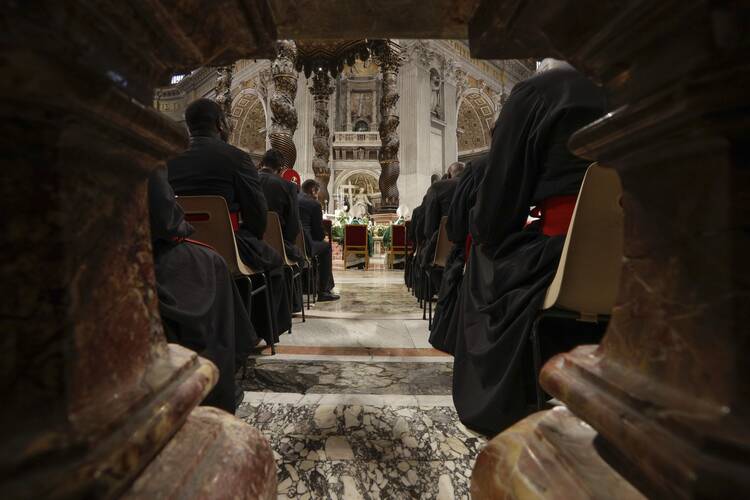VATICAN CITY (AP) — A top Vatican administrator is denying the Holy See risks default over its structural deficit, saying claims in a new book about possible financial ruin are overblown.
Archbishop Nunzio Galantino, president of the office that manages the Vatican's real estate and other assets, told the Avvenire newspaper of the Italian bishops' conference Tuesday that all that is needed is a "spending review" to bring down costs.
Galantino was responding to claims in a new book published Monday, "Universal Judgment" by Italian author Gianluigi Nuzzi, that has added to speculation about the Vatican's finances and the state of Pope Francis' promised reforms.
The Vatican hasn't published a budget since 2015 and has been without an in-house auditor or economy minister for more than two years, fueling conspiracies about its financial health.
The Vatican hasn't published a budget since 2015 and has been without an in-house auditor or economy minister for more than two years.
Those conspiracies have only grown following a new financial scandal that erupted this month, after Vatican police raided the secretariat of state and the financial intelligence unit in search of documentation about a problematic 150 million-euro London real estate investment.
The search warrant, excerpts of which were published this weekend by L'Espresso magazine, alleges fraud, money laundering and abuse of office connected to the London venture and efforts by the Vatican to renegotiate the terms and identify money managers who were fleecing the Holy See in the deal.
The scandal has laid bare both the vast amount of money the Holy See has at its disposal for investment — including donations from the faithful for charity — and the seeming incompetence of the Vatican monsignors responsible for managing it.
Citing the warrant, L'Espresso reported the secretariat of state was managing off-balance sheet assets of some 650 million euros "derived mostly from donations received by the Holy Father for works of charity and supporting the Roman Curia," or the Vatican bureaucracy.
The scandal has laid bare the vast amount of money the Holy See has at its disposal for investment.
L'Espresso said the Vatican in 2012 considered investing some $200 million of that money in an Angolan offshore oil rig, based on a proposal by Cardinal Angelo Becciu, the Vatican's then-chief of staff and onetime ambassador to Angola.
His proposal was ultimately rejected as unsafe. Instead, the money was invested in converting a onetime Harrod's warehouse in Chelsea into luxury apartments. But even that deal went sour, after Becciu's replacement in 2018 realized the Vatican was being fleeced by the Italian financiers it had trusted, and sought to buy them out.
The scandal is the latest to draw attention to the opaque finances of the central government of the 1.2-billion strong Catholic Church, which is funded not by taxes but from donations and revenues from the Vatican Museums, real estate and other money-making ventures in the city state.
Galantino, head of the APSA administrative office, confirmed the Vatican owned 2,400 apartments and 600 commercial spaces in Rome and nearby, 60% of which are rented to Holy See employees at a reduced rent as part of their benefits.
German Cardinal Reinhard Marx, who heads the Vatican's economy council, has acknowledged Francis has told him to bring down costs but has insisted the shortfall can be resolved over the next year or two. He did not dispute news reports estimating the deficit at about 70 million euro.
"We have to go forward otherwise I cannot see how to sign a budget with a structural deficit," Marx told reporters this month. "But that is a way we can go in several years. That is not a catastrophe."











Good gracious, the Vatican has an avowed marxist (no pun) running the economy council and viable change is expected? This is akin to appointing Greta Thunberg to oversee the Strategic Petroleum Reserve. Bizarre!
“The Vatican hasn't published a budget since 2015 and has been without an in-house auditor or economy minister for more than two years . . .” Why would anyone in their right mind contribute a penny to an organization as financially opaque as this one? How could anyone trust (financially) an organization in which one department (the secretariat of state) is allowed to manage off balance-sheet assets of 650 million euros? If Catholicism International, Ltd. were a corporation subject to basic modern rules and laws governing financial reporting and accounting, it would have been shut down some time ago. Perhaps financial ruin would be the best thing for the international REIT the Church has become.